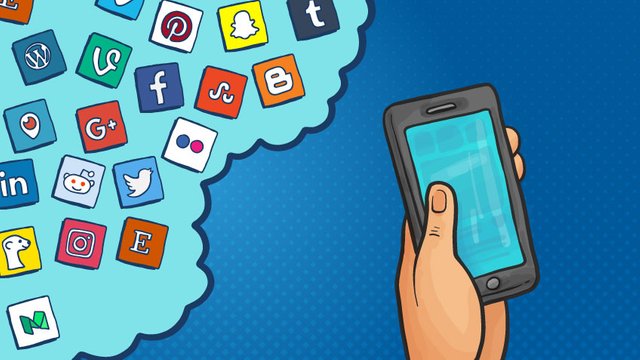How Using Social Media Affects Teenagers
any parents worry {about how precisely} {contact with|experience of} technology might affect {small children|kids|little ones} developmentally. We know our preschoolers are picking up new social and intellectual skills at a stunning pace, and we {avoid|may|no longer} want hours spent {adhered|fixed|cemented} to an iPad to impede that. But {teenage years is|age of puberty is|teenage life is} an equally important period of rapid development, and too few {people are|individuals are} paying attention to how our teenagers' use of technology--much more {powerful|strong} and intimate than a some years old playing with dad's iPhone--is affecting them. Actually experts worry that the {interpersonal|sociable|cultural} media and {sms|texts} {which may have|that contain} become so integral to teenage life are promoting anxiety and lowering {self-pride|self esteem}.
Young people report that there might be good reason to worry. A survey conducted by the Royal Society for {Public well-being|Public welfare} asked 14-24 year olds in the UK how social media platforms {affected|afflicted|influenced} their {health and wellness|well being}. The {study|review} results found that Snapchat, Facebook, Twitter and Instagram all {resulted in|generated|triggered} increased {emotions|thoughts} of depression, anxiety, poor body image and {isolation|solitude|being alone}.
Indirect communication
Teens are masters at keeping themselves occupied in the several hours after school until way past bedtime. When they're not doing their {research|home work|groundwork} (and when they are) they're online and {on the|issues|prove} phones, texting, sharing, trolling, scrolling, you name it. Of course before everyone had an Instagram {accounts|bank account|consideration} teens kept themselves {occupied|active}, too, {nevertheless they were|nonetheless they were} more likely to do their {talking|speaking|communicating} on the phone, or in person when {dangling|suspending|clinging} out at the {shopping mall|shopping center|nearby mall}. It may have {appeared as if|seemed like} a lot of {discursive|feckless|formless} hanging around, but what they were doing was experimenting, trying out skills, and succeeding and {faltering|declining|screwing up} in tons of {small|little|very small} real-time interactions that kids today are missing away on. For one thing, modern teens are learning to do {almost all of} their communication while seeking at a screen, not another person.
"As {a varieties|a types|a kinds} we {are incredibly} highly {mindful|synchronized} to reading social {tips|signs}, " says Dr. Catherine Steiner-Adair, a clinical {psychiatrist|psycho therapist} and author of The Big Disconnect. "There's no question kids are {lacking|absent} out on very critical social skills. In a way, texting and online communicating--it's be offended creates a nonverbal learning {impairment|handicap|incapacity}, but it puts {every person} in a nonverbal {handicapped|impaired|incapable} context, where body {vocabulary|terminology|dialect}, facial expression, and even the smallest {sorts|varieties} of vocal reactions are {made|delivered|performed} invisible. {inch|inches}
Lowering the risks
Certainly speaking {not directly|ultimately} creates a barrier in order to communication, but that's not all. Learning how to make friends is {a significant|an important|a serious} part of growing up, and {companionship|a friendly relationship|camaraderie} requires {a specific amount|a certain quantity} of risk-taking. This is true {to make|in making} a new friend, but {it is also|additionally it is|recharging options} true for {keeping|preserving|retaining} friendships. When there are {issues that|conditions that} need to be faced--big ones or small ones--it takes courage to be honest about your feelings and then {listen to|notice} what the other person has to say. {Learning how to|Finding out how to|Understanding how to} effectively cross these {links is|connections is} part of {why is|the actual|the particular} friendship fun and {fascinating|thrilling|interesting}, and also scary. "Part of healthy self-esteem is knowing how {to express|to state|to talk about} what you think and feel even when you're in disagreement with other people or it feels {psychologically|mentally} risky, " notes {Doctor|Medical professional}. Steiner-Adair.
Related Video:
{Yet|Nevertheless|Although} when friendship is conducted online and through {text messages|text messaging}, kids are doing this in a context removed {of numerous|of several|of countless} of the most personal--and sometimes intimidating--aspects of communication. It's {much easier to|better to} keep your guard up {when you are|if you are} texting, so less {reaches|are at|is in} stake. You aren't {reading|experiencing|seeing and hearing} or seeing the {impact|result} that your words are having on the other person. Because the {discussion|dialogue|chat} isn't happening in real time, each party {may take|will take|usually takes} more time to consider a response. No {question|ponder|speculate} kids say calling someone on the phone is "too intense"--it requires more direct communication, and if you aren't used to that it may well feel scary.
If kids aren't getting enough practice relating to people and getting their needs {fulfilled|achieved|attained} {personally|face-to-face} and in real time, many of them will grow up to be adults who are anxious about our species' primary means of communication--talking. And of course {interpersonal|sociable|cultural} negotiations only get riskier as people get {old|more mature|elderly} and {commence|get started} navigating {passionate|intimate|loving} relationships and employment.